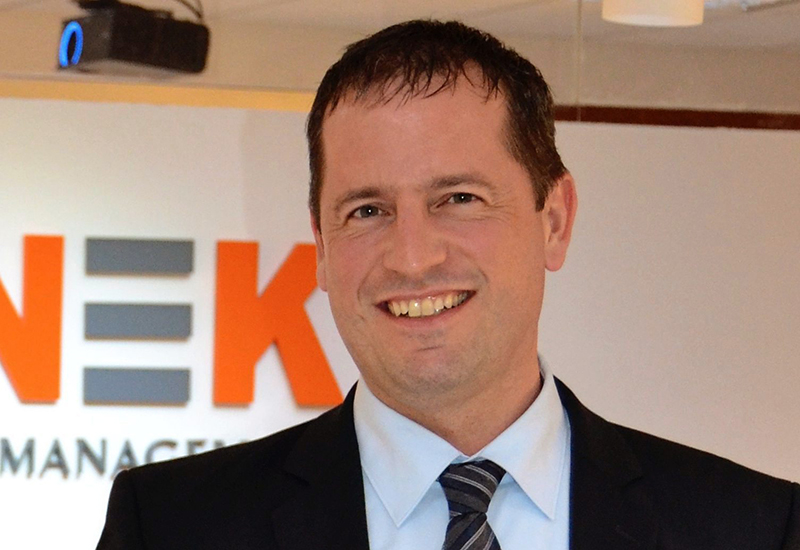Although human resources is one of the most complex and comprehensive elements of any business operation, the formula for successful staff retention on the face of it should be relatively simple: hiring the right talent for the right position and equipping them with the right tools to complete their tasks.
Ordinarily, this approach would transcend many industries. However, in the UAE hospitality sector there is another dimension that requires due consideration — flexible staffing. In the US, payroll alone can account for up to 50% of a hotel’s total operating expenses. In the UAE there’s the added expense of staff accommodation and transportation.
Another expense that UAE hotels are saddled with is the risk and associated cost of recruitment and retention – so there’s a lot riding on human resources, especially when guest service demand and RevPAR can fluctuate significantly throughout the year.
In July, hotels across the UAE achieved an average occupancy of 66%. The good news is this figure is 0.9% higher than the previous month, although the last two weeks of Ramadan did fall into June.
The less-than-ideal news is the subsequent impact on ADR and RevPAR, which decreased 9.7% and 8.8% respectively, year-on-year.

| Advertisement |
This isn’t a seasonal anomaly. Full year figures for 2017 showed that while average occupancy inched up 0.5%, ADR declined 3.8% and RevPAR 3.3%. This has not been helped by the effect that the strong US dollar is currently having on the UK pound, the euro, the Russian rouble and particularly, the Indian rupee, making the UAE a more expensive destination.
However, performance started to waver in 2016, when the first major influx of new supply for Expo 2020 entered the market. The trend is set to continue for another 12 months, with 126,576 rooms across 222 projects, in the UAE pipeline for 2018.
But the resulting pressure on budgets is only half the story. Hoteliers faced with the challenge of reducing costs while competing for both guests and talent, have their work cut out.
In fact, data from consultancy Robert Half confirms that 85% of CFOs are concerned about losing top performers this year, as competition heats up.
In this climate, manpower services can present a competitive solution, especially when providers such as Farnek, have supported the hospitality industry with outsourced personnel for housekeeping, security, maintenance and recreational staff, to name but a few, for many years.
The trend that we will see developing now is that hoteliers will want skilled talent, paired with unique requirements to enhance outcomes, efficiency and cost. In short, a responsive and agile model designed around the needs of the modern hospitality business.
Manpower supply leverages talent and flexibility while achieving exactly this. The strategy is to meet demand for skilled technicians, both contract and permanent, in a marketplace where quick and flexible access to the right people creates clear business advantages.
Major manpower services companies can effectively match hospitality professionals with specific skillsets to explicit job requirements, with a broader and longer-term outlook than the more traditional approach to outsourcing.
Business partners benefit from the expertise of skilled workers who aren’t just qualified in their area of expertise, they can also provide solutions derived from experience gained from working in other allied sectors, such as event management, and contract catering for example.
They also benefit from our ability to mobilise staff for large projects quickly, such as support staff to strengthen pre-opening management teams, as they strive to open on time and on budget, a challenge faced by many executives of new hotels today.
And of course, we acknowledge that supplying highly trained manpower must be completed at a competitive price-point, which can save between 30 to 50% on the cost of hiring full time, in-house employees. Pin-pointing demand for skilled staff and responding with bespoke solutions, should certainly enhance those figures.
Manpower supply can provide the hospitality sector with a viable and sustainable solution, particularly as business becomes ever more automated.
One thing is for sure, disruption is inevitable in human resource and as the great Bob Dylan once wrote, ‘Times they are a-changin’.
About the Author: Markus Oberlin is the CEO of Farnek – one of the leading total facilities management companies in the UAE with a workforce of 4000+ employees. He has more than 25 years’ international experience in the field of facilities and energy management and has been working for Farnek for more than 10 years. Markus Oberlin is a certified engineer / MBA. Contact info@farnek.com.









 Search our database of more than 2,700 industry companies
Search our database of more than 2,700 industry companies









